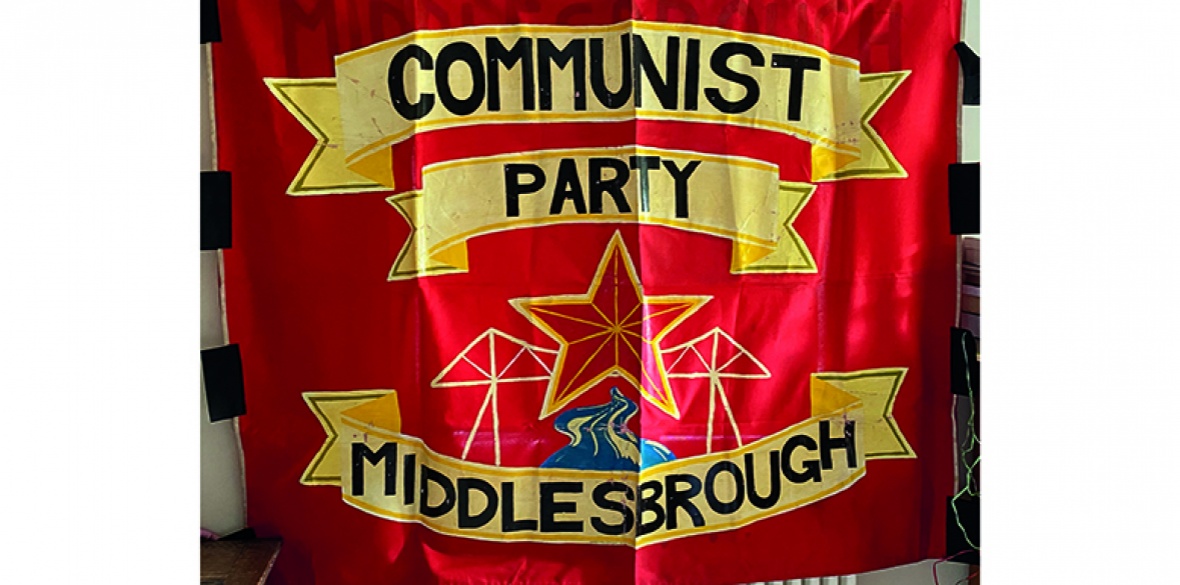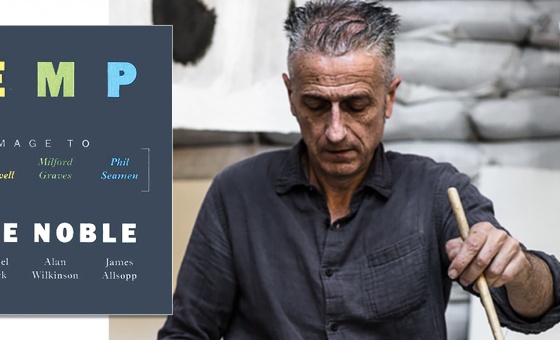This is the last article you can read this month
You can read more article this month
You can read more articles this month
Sorry your limit is up for this month
Reset on:
Please help support the Morning Star by subscribing here
THE Communist Party was once a powerful force on Teesside, with a distinguished record of local campaigns and public agitations, influential in the shipbuilding, steel, railway and local government trade unions.
In the 1920s, the party led the National Unemployed Workers’ Movement in a bitterly fought struggle to hold public meetings at Stockton Cross.
In the 1930s, communists led the campaign against the British Union of Fascists on Teesside.
In 1938, the party successfully persuaded Middlesbrough dockers not to load the SS Haruna Maru with pig-iron bound for Japan, the first of a series of industrial actions in British ports taken in protest against the Japanese war effort in Manchuria.
Several Teesside party members fought in Spain, most notably Dave Goodman, Dave Marshall, Tommy Chilvers, Jim Worton and John Longstaff.
Prominent local party members included George Short, who trained at the Lenin School in Moscow in the early 1930s; the Unity Theatre, Royal Shakespeare Company and Coronation Street actor Anne Dyson; the distinguished scientist Norman Levy; the long-standing president of Middlesbrough Trades Council, Jack Feeney; Nina Hibbin, former film critic of the Daily Worker.
In the 1930s the Young Communist League had its own premises in Middlesbrough; YCL members started Teesside Unity Theatre, taking political sketches round working men’s clubs in the town.
During the second world war the party on Teesside was strong enough (with several councillors on Stockton Council), to be organised as a party district. George Short was secretary.
After the war, the party was involved in the squatters’ movement, the peace movement, the Campaign for Racial Equality, the pensioners’ movement and the trades councils.
During the 1966 World Cup, the branch made a presentation to the North Korean team playing their group matches at Ayresome Park.
In the 1980s, Teesside communists were denounced by the Daily Mail for being part of a “Communist-lesbian plot” to overthrow the family when the branch supported the paediatricians suspended during the Cleveland child abuse crisis.
Stuart Hill is a former national vice-president of National Union of Public Employees. In 1964 he was just 14, and discovering politics.
“The American war against Vietnam inspired me to become active. Dave Wedlake, my best friend at school, and I established the local branch of Medical Aid for Vietnam.
“We both joined the Young Communist League because it seemed to be the most active organisation campaigning against the war.
“It sometimes arranged transport to the London demonstrations organised by the Vietnam Solidarity Campaign.
“They were so noisy, exciting and colourful with their posters, music and chants.
“The first time we were taken into custody was at the Darlington dog show, a big event in those days.
“The police suspected our collecting tins were a money-making scam. One of the policemen winked at us as he put a pound note in the tin.
“One time we made our own way down, hitchhiking overnight. We ended up shivering in the early hours on the steps of the old Communist Party offices, at 16 King Street.
“A policeman ordered us to accompany him to a nearby police station. In the interview room he was provocative and aggressive.
“At one point he raised his truncheon above his head and brought it crashing down on an old table.
“Alerted by the noise, a grizzled old sergeant appeared. He took everything in at a glance. ‘Get back out on patrol. You have better things to do than bullying two boys,’ he said.
“As part of the worldwide protests against the US bombing of Hanoi, the Stockton and Middlesbrough party branches mobilised a large turnout to leaflet Christmas shoppers on Linthorpe Road.
“Suddenly, there were police vehicles and officers everywhere. Dave was arrested for obstructing the Queen’s highway. When I protested I was also arrested.
“For some reason they were only arresting the younger, male protesters. An older comrade, Gordon Tinkler, insisted that he be arrested as well. He had lost a leg in the war. The police refused to arrest him and had to stop him climbing into one of their vans.
“Three of us were put in a dog van with an enormous, snarling Alsatian. Its handler had fun letting it get very close to us with its teeth bared and barking madly. I was scared stiff.
“At Dunning Road police station, we were taken to be formally charged. One officer took a sudden dislike to Bruce Sanderson (later a national officer of Unite) and started to bang his head against a wall.
“The sound it made was sickening but we were helpless to interfere.
“We repeatedly attended the magistrates’ court only for our trial to be adjourned due to police witnesses not being available.
“Eventually, we were all given stiff fines. These were mysteriously paid by an anonymous benefactor.
“Many years later I found out that they were paid by Johnny Longstaff, ex-hunger marcher and International Brigader.”
Dot Granville was branch press secretary in the 1970s.
“I left school with a hazy idea the world wasn’t fair but I was a teenager; the Beatles had just begun and I was more interested in flattening my hair and dancing than changing the world.
“Before long I was a young wife and mother, ridiculously young, and very poor. I was very busy scraping along, living hand to mouth, doing part-time jobs and looking after small children, but I was always an avid reader.
“It was only after I joined the CP, that I began to be politically educated. The British Road to Socialism was my introduction to practical political action based on theory.
“We had a thriving branch which included academics, trades unionists, a sub group of TASS [Technical, Administrative and Supervisory Section] members of AUEW [Amalgamated Union of Engineering Workers], students, housewives and pensioners.
“We had a robust social life, organising many social and fundraiser activities, including folk evenings, trips to the countryside, fetes, market stalls etc and had regular weekly meetings.
“We contested local elections and had regular press releases published locally.
“We were selling the Morning Star outside Labour and trades union meetings and in Middlesbrough town centre every weekend.
“Jack Feeney would be there, rain and shine. Jack had been involved in food distribution to strikers during the General Strike.
“He was one of our oldest members and he had a fund of anecdotes and memories from two world wars, the Great Depression and the Jarrow hunger marches.
“Through Jack I made my first public speech at a Teesside pensioners’ rally at the town hall.
“AL Morton’s A People’s History of England and Robert Tressell’s The Ragged Trousered Philanthropists were my bedtime reading while during the day I was balancing housework and childcare with organising branch meetings and writing press releases.
“My phone was bugged at this point and we had unmarked Special Branch cars outside my house when we held meetings.
“I went out and invited them in on more than one occasion.
“On one occasion Stuart, Bob Forsyth, Bruce Sanderson and me damaged Middlesbrough cricket pitch to protest against the planned match between England and South Africa.
“We also had labels printed saying ‘No Bananas from Afrikaanas’ and stuck them on fruit in shops all over Middlesbrough.
“Another time we were thrown out of the town hall for heckling Tory minister Iain Macleod.
“I was persuaded to stand in the local council elections, not because we thought we could win, but in order to have a platform to expand our ideas.
“We did get quite a bit of press coverage and got just under 200 votes, enough to reduce the Labour vote in one ward and unseat the right-wing Labour chair of education, Peter Fulton.
“I remember the Tories during the campaign and at the count being very civil but the Labour canvassers were vicious.
“Several female branch members and I formed a subgroup, Teesside Women for Socialism.
“I had been feeling frustrated by the lack of feminism in the party at that time and reading a lot of radical feminist literature, I gradually moved away from the CP.
“I went back into full-time education and after gaining a BA did post-graduate teacher training.
“I have had a long and fulfilling career teaching and am now retired but my education began with the years in the CP and I am eternally grateful to the comrades who helped me.”








